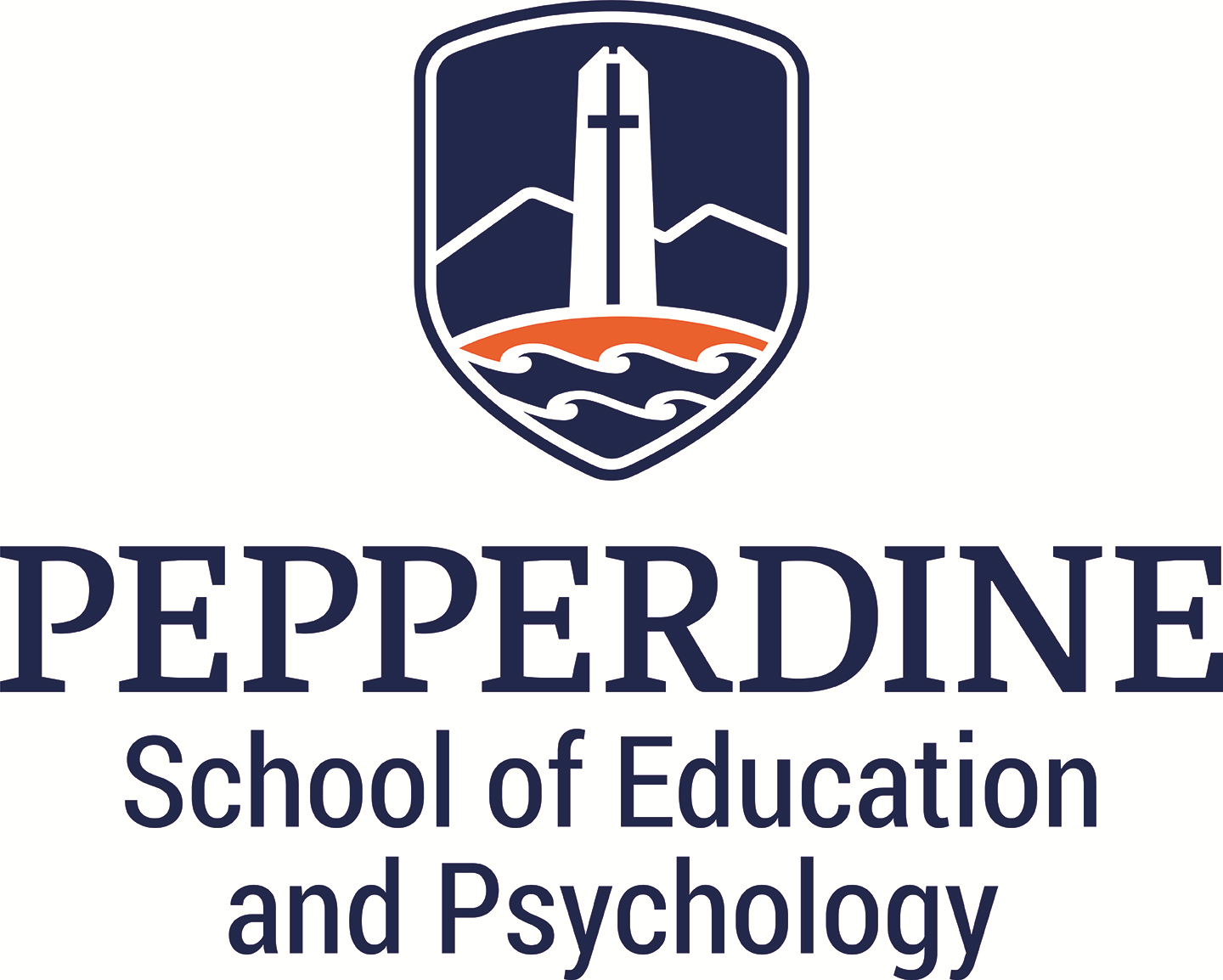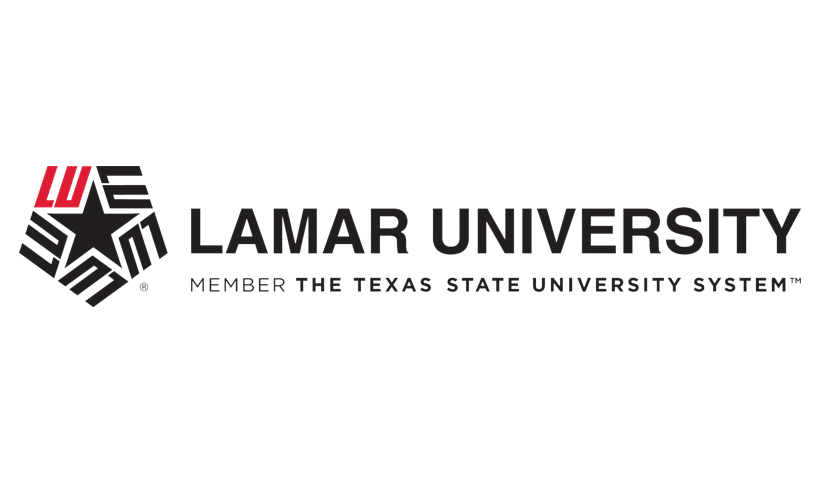If you have a keen interest in psychology and mental health, you might benefit from exploring counseling or psychology degree programs. A master’s in counseling vs. psychology is a necessary comparison for many students.
Counseling involves helping others by using therapeutic methods, such as psychotherapy, in clinical settings. Master’s programs focus on how to work with patients on healthy communication, coping mechanisms, and interrupting trauma cycles.
Master’s in psychology programs take a more scientific approach to psychology. Coursework in these programs focuses on scientific tests and measurements in psychology, specialized fields that include studying a person’s frame of mind and aspects of normal and abnormal psychological development.
As you consider master’s in counseling vs. psychology degree programs, you may notice that there are many degree options and specializations available for you to choose from. Each of these paths was created to provide you with structured learning that is specific to the career you plan to engage in after graduation.
 Walden University : MS in Clinical Mental Health Counseling (CACREP Accredited, six specializations to choose from)
Walden University : MS in Clinical Mental Health Counseling (CACREP Accredited, six specializations to choose from) Walden University : MS in School Counseling (CACREP Accredited)
Walden University : MS in School Counseling (CACREP Accredited) Northwestern University : Online MA in Counseling (CACREP Accredited)
Northwestern University : Online MA in Counseling (CACREP Accredited) Northwestern University : Master of Science in Marriage and Family Therapy (Complete your COAMFTE-accredited MFT online program in as few as 21 months. No GRE required.)
Northwestern University : Master of Science in Marriage and Family Therapy (Complete your COAMFTE-accredited MFT online program in as few as 21 months. No GRE required.) Grand Canyon University : Master's Degree in Counseling (CACREP Accredited)
Grand Canyon University : Master's Degree in Counseling (CACREP Accredited) Liberty University : MA: Clinical Mental Health Counseling (Online with required intensives)
Liberty University : MA: Clinical Mental Health Counseling (Online with required intensives) National University : Master of Science in Clinical Mental Health Counseling (Accredited. No GRE. Scholarships Available)
National University : Master of Science in Clinical Mental Health Counseling (Accredited. No GRE. Scholarships Available) University of Denver : Master of Arts in School Counseling (CACREP Accredited)
University of Denver : Master of Arts in School Counseling (CACREP Accredited) Mid-America Christian University (MACU) : Master of Science (MS) in Counseling (100% Online, No GRE Required)
Mid-America Christian University (MACU) : Master of Science (MS) in Counseling (100% Online, No GRE Required)Master’s in Counseling vs. Master’s in Psychology: Educational Requirements
Doing your research into career options in mental health and psychological science can help you determine the best learning path for you to pursue. Both the online master’s in counseling and master’s in psychology can be beneficial to learners who are intrigued by the human mind and how it processes daily stimuli from the environment.
Most careers in counseling and advanced psychology require that you go through the steps required to become licensed. As a general rule of thumb, you should keep in mind that the minimum degree requirement for licensure in most states is a master’s degree.
Your chosen school should have the right type of accreditation for your field, which can help you rest assured that your involvement in a master’s program could potentially lead to licensure. Accreditation for the fields of counseling and psychology is often provided by the Council for Accreditation of Counseling and Related Educational Programs (CACREP) and the American Psychological Association (APA).
As you consider a master’s in counseling vs. psychology, you should definitely research the specific accreditation of your program against the requirements of licensure in your state. Most universities offer this information to you on the program’s web page.
Consider a Featured Online Counseling Program
| School and Program Information | Online Program? Entry Requirements | Course Information | |
|---|---|---|---|
|
Walden University
MS in Clinical Mental Health Counseling
 CACREP Accredited CACREP Accredited |
✔ Online
GRE scores not required
|
Walden’s online CACREP-accredited MS in Clinical Mental Health Counseling program can help you become the competent, compassionate counselor you know you can be.
|
Learn More |
|
Walden University
MS in School Counseling
 CACREP Accredited CACREP Accredited |
✔ Online
GRE scores not required
|
CACREP-accredited program provides a solid foundation in school counseling theories, approaches, and best practices while enabling you to gain hands-on experience.
|
Learn More |
|
Northwestern University
Online MA in Counseling
 CACREP Accredited CACREP Accredited |
✔ Online
GRE Not Required
Bachelor's Required |
CACREP-accredited online Master of Arts in Counseling from The Family Institute at Northwestern University. Prepare to pursue licensure in as few as 18 months.
|
Learn More |
|
Northwestern University
Master of Science in Marriage and Family Therapy
COAMFTE Accredited
|
✔ Online
GRE Not Required
Bachelor's Required |
Complete your COAMFTE-accredited MFT online program in as few as 21 months. No GRE required.
|
Learn More |
|
Grand Canyon University
Master's Degree in Counseling
 CACREP Accredited CACREP Accredited |
✔ Online
|
CACREP-accredited MS in Clinical Mental Health Counseling. Emphases: Marriage & Family Therapy, Christian Counseling, Childhood & Adolescence Disorders, & Trauma.
|
Learn More |
|
Liberty University
MA: Clinical Mental Health Counseling
 CACREP Accredited CACREP Accredited |
✔ Online
Online with required intensives
|
Our CACREP-accredited online master’s in counseling helps you become a skilled mental health counselor ready to empower others for positive change.
|
Learn More |
|
National University
Master of Science in Clinical Mental Health Counseling
WSCUC Accredited
|
✔ Online
GRE Scores Not Required
|
Focused on training highly skilled counselors to provide impactful and culturally sensitive mental health services in their communities.
|
Learn More |
|
University of Denver
Master of Arts in School Counseling
 CACREP Accredited CACREP Accredited |
✔ Online
No GRE Required; Minimum GPA 2.5 Required
|
With no GRE required, earn your CACREP-accredited Master's in School Counseling online in as few as 24 months from the University of Denver.
|
Learn More |
|
Mid-America Christian University (MACU)
Master of Science (MS) in Counseling
Higher Learning Commission (HLC)
|
✔ Online
100% Online
|
Oklahoma’s largest MS in Counseling program, with emphases in addiction and substance abuse, applied behavioral science, clinical mental health counseling, and more!
|
Learn More |
*Sponsored Counseling Programs
For detailed degree information, view the guides to:
Online CACREP Accredited programs | Online MPCAC Accredited programs
What Is a Master’s in Counseling?
While you review online institutions offering degree programs in counseling, you should look closely at the curriculum provided by each one. The courses that you take during your program can influence your focus areas and career interests going forward.
A master’s in counseling involves coursework that covers the signs and symptoms of mental health disorders, methods for conducting assessments on your clients, and the step-by-step process of developing an individualized treatment plan.
A graduate counseling program can also include a specialization that can better prepare you for working with a certain population in society. Marriage and family counseling, school counseling, and career counseling are just a few of the many different concentration options you might see during your initial search.
What Is a Master’s in Psychology?
For students who are more focused on the scientific and experimental aspects of mental health, a master’s in psychology may be a viable option to consider. This online program can help you develop effective treatment programs for individuals with simple to complex mental health disorders, and even help you gain expertise in the development-specific aspects of psychology.
An online master’s in psychology can be an excellent program for learners interested in helping people by further advancing understanding in the field of psychology. Students may be trained to conduct psychological tests in different professional environments in an effort to diagnose and recommend treatment for their clients.
This degree program may also offer the option of choosing a secondary field to add to your degree, such as forensic psychology, counseling psychology, or developmental psychology.
 Walden University - MS in Clinical Mental Health Counseling (CACREP Accredited)
Walden University - MS in Clinical Mental Health Counseling (CACREP Accredited)
 Walden University - MS in School Counseling (CACREP Accredited)
Walden University - MS in School Counseling (CACREP Accredited)
 Northwestern University - Online MA in Counseling (CACREP Accredited)
Northwestern University - Online MA in Counseling (CACREP Accredited)
 Northwestern University - Master of Science in Marriage and Family Therapy (COAMFTE Accredited)
Northwestern University - Master of Science in Marriage and Family Therapy (COAMFTE Accredited)
 Grand Canyon University - Master's Degree in Counseling (CACREP Accredited)
Grand Canyon University - Master's Degree in Counseling (CACREP Accredited)
 Liberty University - MA: Clinical Mental Health Counseling (CACREP Accredited)
Liberty University - MA: Clinical Mental Health Counseling (CACREP Accredited)
 National University - Master of Science in Clinical Mental Health Counseling (WSCUC Accredited)
National University - Master of Science in Clinical Mental Health Counseling (WSCUC Accredited)
 University of Denver - Master of Arts in School Counseling (CACREP Accredited)
University of Denver - Master of Arts in School Counseling (CACREP Accredited)
 Mid-America Christian University (MACU) - Master of Science (MS) in Counseling (Higher Learning Commission (HLC) Accredited)
Mid-America Christian University (MACU) - Master of Science (MS) in Counseling (Higher Learning Commission (HLC) Accredited)
Online Programs to Consider
If you choose to pursue a career in professional counseling, your minimum degree requirement for licensure is a master’s degree. When looking at either master’s in counseling or psychology programs, it’s important to prioritize accreditation status as well as areas of focus or specialization.
CACREP provides students with an updated list of accredited schools on its website. Take a look at a few example schools that can be found through your search.
- Messiah College: Online Master’s in Clinical Mental Health Counseling, Marriage, Couple, and Family Counseling, and School Counseling
- North Carolina State University: Online Master’s in Clinical Mental Health Counseling, Students Affairs and College Counseling, and School Counseling
At the graduate level, many accredited master’s psychology programs may require additional certification in order to gain licensure. Generalized online degree programs in psychology at the master’s level can be found at a large number of schools all over the U.S. Some schools offering this program online can be found below.
- Arizona State University: Online Master’s in Psychology
- Purdue University: Online Master’s in Psychology — Applied Behavior Analysis, Addictions, Forensic, and I/O Specializations Available
Master of Science in Counseling Pros and Cons
When considering your educational path, it’s important to look at the Master of Science in Counseling pros and cons. The benefits of a master’s in counseling include:
- Learning more about effective counseling techniques
- Exposure to different career options — such as family therapist or school counselor careers
While master’s in counseling graduates can specifically focus on the needs of their clients, they lack the training to influence their field through further research and development. To play more of a leadership role within this field, you may benefit from a master of education in counseling degree, which will allow you to both practice and teach.
Master of Education in Counseling Pros and Cons
In terms of the master of education in counseling pros and cons, you can expect a more rigorous educational experience, but also more opportunities to work in an academic setting and to conduct research within your field.
Master of Science in Psychology Pros and Cons
A master’s in psychology could be the ideal choice for learners with the desire to break apart complex problems and determine effective and meaningful solutions. The benefits of a master’s in psychology include:
- In-depth scientific knowledge that can be applied to several different professional fields, including business, education, and even healthcare
- Technical knowledge for conducting tests and diagnosing patients
A shortcoming of a master’s in psychology is its focus on more scientific aspects of behavior, which may mean leaving out some of the training in relationship and communication issues found in the counseling program. Your decision to pursue either a master’s in counseling or psychology degree program should include a look at both the positive and negative aspects of each.
Classes to Take
Those deciding between a graduate counseling or a graduate psychology program should consider some of the available courses.
- Intro to Counseling: Students enrolled in counseling programs may begin their experience with a course that outlines the history and development of this field at the start of their classes. This course can introduce students to the general mission of this field, as well as founding professionals that aided in its growth.
- Research Methods: Students in both counseling and psychology may spend some time training to plan and implement relevant research projects during their studies. This course leads students through the conceptualization of a hypothesis, planning the research project, collecting data, and reporting results.
- Working with Diverse Populations: Both counseling and psychology professionals alike should be able to work with people from all walks of life. Since these fields are based on the needs of all people, learning about different cultures, beliefs, and religions in this course can be beneficial to all professionals who want to provide the best quality of care to everyone they serve.
Can You Become a Counselor with a Master’s in Psychology?
If you’re drawn to the counseling profession but also have an intellectual interest in psychological principles, you may wonder if you can become a counselor with a master’s in psychology.
Generally speaking, a bachelor’s degree in psychology can provide a good foundation for further study in counseling. However, a psychology degree may not furnish you with the specific skills needed to build rapport and communicate with clients in a therapeutic setting. As such, a master’s or doctorate degree in counseling is usually necessary for licensing and practice.
Counseling vs. Clinical Psychology: What’s the Difference?
When it comes to counseling vs. clinical psychology, the difference mainly has to do with the clients or patients you treat. Counselors generally see patients who may be dealing with circumstantial mental health issues. Alternatively, clinical psychologists treat patients with diagnosable mental health conditions or other underlying pathologies, many of which may require medication to fully address.
Counseling vs. Clinical Psychology Similarities
There are similarities in a master’s in counseling vs. psychology. Both career paths require individuals to obtain a license. In addition to this, both spend about 2 to 4 years within their educational path. Both work with the function of the brain and dive deep into behavioral health. Many share the same functions in mental health though clinical psychology tends to go further.
Learn More:
Master’s in Counseling vs. Psychology: Still Deciding?
Both psychologists and counselors provide invaluable services to those who need mental health support or treatment. However, a close look at master’s in counseling vs. psychology programs reveals that there are some important distinctions between the two, and they each can lead to different career paths. Explore some resources that explain program specifics, available courses, and schools that are currently accepting applications, and discover which program is right for you.
Learn about a Master’s in Counseling Psychology Program:
Licensure for Counseling and Psychology
Most people enrolled in counseling degree programs intend on pursuing their license once they complete their studies. In order to meet all of the requirements for licensure in your state, you may need to spend some time reviewing the requirements.
Many states require that students earn a minimum of a master’s in counseling from a program that has been accredited by the CACREP. In addition to the educational component, aspiring counselors must also work under the supervision of a licensed counselor for up to two years in a clinical setting.
Once these conditions have been met, students are eligible to sit for the National Counselor Examination, which is the final step before applying for licensure. You are encouraged to find your state’s guidelines prior to enrolling in a program.
In psychology-based fields, different certifications may have different paths to licensure. If you plan to work in a research field or in a specialized area such as forensic psychology, licensing may not be required. Some fields may require a doctorate education.
Other fields, such as applied behavior analysis and school psychology may require you to receive higher certification and engage in other types of supervised clinical experience before applying for licensure.
Careers Available to You
Assessing master’s in counseling vs. psychology degree programs means assessing different career options. Each degree leads to different careers with different patient populations and services.
As a counselor, you can choose to work in any of several different specialized areas, such as child and adolescent counseling, school counseling, clinical mental health counseling, or even marriage and family counseling. Each provides its own standard of care to the population it focuses on, making it important for you to explore the type of people you would like to work with in the field.
Rehabilitation counselor
A rehabilitation counselor is a professional that works with people who have emotional, developmental, mental, or physical disabilities. They often spend their time helping a person learn how to be more independent and may work to improve their quality of life. The Bureau of Labor Statistics (BLS) indicates the 2021 median pay for a person in this field was $38,560 per year. There’s also a significant amount of demand for those in the field, with an 11% growth expected from 2021 to 2031., which is an increase of about 9,800 jobs.
Career counselor
A career counselor works closely with students and others to help them develop a career path. They may also provide help with academic and social skill development that could be important in their future careers. These professionals typically help people make decisions about future employment based on skills and interests. In 2021, the median pay for a person working as a career counselor was $60,510 per year, according to the BLS. There is an expected growth in this industry of about 10% of jobs, with an additional need of 32,400 people from 2021 to 2031.
Substance abuse counselor
Those who wish to work with people who are struggling with alcohol use disorder or other substance use disorders may wish to become a substance abuse counselor. This type of work often includes supporting people as they develop skills to overcome addictions as well as mental health challenges. This work often means understanding the unique impact of behavioral disorders, trauma, and mental health challenges. The BLS reports that, in 2021, the median pay for a substance use counselor was $48,520. There’s an incredible demand in this industry expected from 2021 to 2031. A 22% increase in needed professionals, which is about 77,500 more people, is expected.
Health educator
A health education or health education specialist works to teach people about conditions that impact health and wellbeing. They often work in community health centers, nonprofits, hospitals, and government agencies. Their goal is to promote wellness. The median pay for a health counselor in 2021 was $48,860. There is also significant growth expected in this industry. An additional need of 15,200 jobs, representing a 12% increase, is expected, according to the BLS.
Family therapist
A family therapist works closely with multiple members of a family to help improve communication, deal with trauma, support relationships, and manage problems that often develop. In 2021, a family therapist earned a median income of $49,880. There is an expected 14% increase in demand for qualified family therapists. That’s about 9,100 additional jobs.
Other jobs in this field include:
- Social worker
- Community health worker
- Chemical dependency counselor
- Academic counselor
Psychology careers can be found in education, research, or even partnered with law enforcement and social services. Careers in behavior analysis, school psychology, and clinical psychology are also available to students who are willing to pursue additional training and licensure in the future.
Behavioral therapist
Behavioral therapists spend much of their time working with people who struggle with alcoholism or other addictions as well as mental health disorders. They type to provide diagnosis and treatment plans to help individuals to build a strong skill base. In 2021, a behavioral therapist earned a median pay of $48.520, according to the BLS. There is an expected need for 77,500 more people in this field, representing a 22% increase.
Psychiatric technician
A psychiatric technician works in residential mental health facilities, some health care settings, and psychiatric hospitals. They provide support and care for those who struggle with mental health disorders or developmental disabilities. The BLS reports a median income of $36,230 per year in 2021. There’s demand here at a rate of 9% increase in jobs or about 12,500 positions.
Project manager
A project management specialist is a professional that often works in an office setting, including in the healthcare industry. They provide help with staffing, budgeting, and scheduling. In 2021, the BLS reported a median pay of $91,500 for those in the field. There’s about a 7% growth of positions expected from 2021 to 2031, which is about 56,300 additional jobs.
Developmental specialist
Those working as training and development specialists often spend time working in companies and other organizations to plan and administer programs. This often has a focus on improving relationships, communications, skills, and knowledge of employees. The 2021 median pay in this field, according to the BLS, was $61,570. There is an 8% increase in positions expected from 2021 to 2031, which is about 28,900 positions.
Parole officer
A parole officer works hand-in-hand with people who are in custody, on probation, or on parole. They provide support and guidance while also ensuring individuals meet the requirements set for them. In 2021, the median pay for a parole officer was $60,250. There’s no expected increase in these positions from 2021 to 2031, according to the BLS.
- Social service manager
- Vocational rehabilitation provider
- Child protection worker
- Group home coordinator
- Employee trainer
Discover more career options: What Can You Do with a Master’s in Counseling?
Still Looking For a Counseling Degree?
Here are some of the most popular online counseling programs. On each page, you will find a detailed write-up of the program, specific courses, and schools that offer that program that are currently accepting applicants.
- Highest Paid Counseling Jobs
- Online Counseling Degrees
- Online Master’s in Counseling
- Bachelors in Counseling
- Master’s in Counseling
- Counseling Schools by State
- Counseling Career Guide








